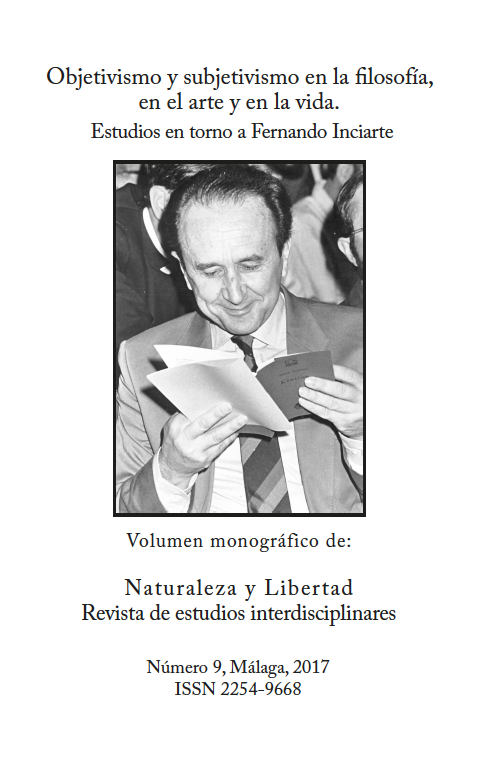Sobre la importancia de lo vero-símil y de la imaginación en el mito platónico para la captación del mundo como imagen de las ideas
DOI:
https://doi.org/10.24310/NATyLIB.2017.v0i9.6382Keywords:
Platón, verosimilitud, imagen, imaginación, mito, religión positiva,Abstract
Este artículo se ocupa de las relaciones del intelecto filosófico con la verdad o las enseñanzas contenidas en la religión positiva. Para ello, centra, en un primer lugar, la atención en algunos textos platónicos en los que Sócrates revela su actitud respecto de lo religioso, especialmente en la Apolo-gía, Cratilo y Fedro. En un segundo momento, a partir de una lectura novedosa de algunos pasajes centrales del Sofista y del Timeo, se busca justificar el carácter autónomo y de auténtico conocimiento de la filosofía, en cuanto explicación de la realidad como imagen de las ideas. Ahí encuentra el autor la auténtica perspectiva desde la que el hombre puede acercarse al conocimiento del mundo y de las cosas divinas.Downloads
Metrics
Downloads
Published
How to Cite
Issue
Section
License
Those authors who have publications with this journal, accept the following terms:
1. Copyright and licensing information are clearly described on the journal’s web site: all content published in Naturaleza y Libertad is open acces without limit, and are subject to the Attribution-NonCommercial-ShareAlike 4.0 International (CC BY-NC-SA 4.0) license. The full text of which can be consulted at https://creativecommons.org/licenses/by-nc-sa/4.0/
2. It is the responsibility of the authors to obtain the necessary permissions for the images that are subject to copyright. The authors whose contributions are accepted for publication in this journal will retain the non-exclusive right to use their contributions for academic, research and educational purposes, including self-archiving or deposit in open access repositories of any kind. The electronic edition of this magazine is edited by the Editorial de la University of Malaga (UmaEditorial), being necessary to cite the origin in any partial or total reproduction.
3. This journal allows and encourages authors to publish papers on their personal websites or in institutional repositories, both before and after their publication in this journal, as long as they provide bibliographic information that accredits, if applicable, your posting on it.
4. In no case will anonymous papers be published.





18.png)













